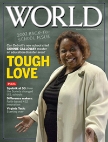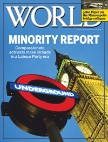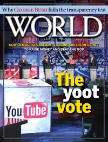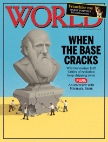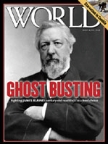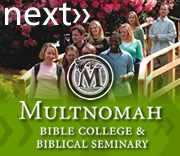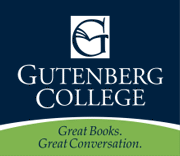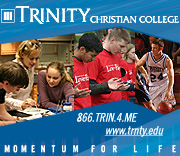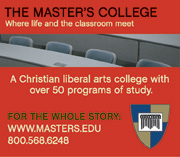Crisis averted
Education: Baylor avoids repeating an anti-ID purge from years before | Mark Bergin
 |
Robert J. Marks fully endorses the vision of Baylor University. The distinguished professor of engineering left his longtime position at a secular school four years ago to help Baylor realize its ambitious aim—namely, to achieve the status of a top-tier research institution without compromising its distinctly Christian worldview.
To that end, Marks recently created a lab dedicated to evolutionary informatics, the study of whether Darwinian processes like random mutation and natural selection can generate new information. He published his findings on a university-hosted website, believing the research to be both top tier and consistent with Baylor's Baptist heritage.
But some members of the Baylor community took issue with Marks' conclusions, which place limits on the scope of Darwinism and offer scientific support for the theory of intelligent design. These ID opponents, who remain unidentified, complained to Dean Ben Kelley of the School of Engineering and Computer Science, who promptly pulled the plug on Marks' lab and took down the accompanying website.
To William Dembski, a friend of Marks and collaborator on his informatics research, the move recalled a previous ID spat at Baylor in 2000 when opponents of the theory succeeded in derailing Dembski's ID-advancing Michael Polanyi Center. Such hostility prompted Dembski to eventually leave the Waco, Texas, school for the friendlier landscape of Southern Baptist Theological Seminary in Louisville and now Southwestern Baptist Theological Seminary in Fort Worth.
Marks has no intention of following his friend's departure. And thanks to a two-hour meeting Aug. 9 with Dean Kelley and Baylor Provost Randall O'Brien, he also now has no need to leave. With attorneys for both sides present, Kelley agreed that Marks was free to resume work in the informatics lab on his own time and repost his website, provided a disclaimer accompany any ID-advancing research to make clear that the work does not represent the university's position.
Marks told WORLD he considers the situation "wonderfully resolved" and expressed his continued enthusiasm for the school's vision and "the commitment of Baylor to the Lordship of Jesus Christ."
Marks' attorney John Gilmore said the resolution with school officials stemmed from the willingness of all parties to approach each other with respect, an atmosphere often lacking during Dembski's ordeal seven years ago. Gilmore was quick to warn that opposition to ID research at Baylor may still lie ahead, but he is persuaded that it will not originate with the school's top brass: "I was concerned at one point that the shutting down of Professor Marks' website was the beginning of an institutional purge of intelligent design at Baylor. I came away from that meeting absolutely convinced it's not."
Provost O'Brien insisted that the initial shutdown of Marks' lab and website was nothing more than an effort to comply with university policy, which forbids professors to create even the impression that their personal views represent Baylor as an institution. O'Brien told WORLD that the university's stance on origins is inherently theistic given its commitment to Christian truth, but that many faculty members disagree on the merits of ID.
"We hire only committed Christians at Baylor," he said, before noting that one professor at the school is Jewish, the lone exception to the rule. "Therefore, we have no one on our faculty who believes in atheistic evolution. We have many professors who believe in theistic evolution. We also have a number of professors who advocate intelligent design."
Gilmore, who witnessed sharp anti-ID bias at Baylor as an advisor to Dembski during his tiff with the school, considers the university's current position much more reasonable and says Marks never intended to pick a fight. Dembski's presence as a named collaborator in the evolutionary informatics lab may have reopened old wounds, but mutual respect for academic freedom appears to have sufficiently dressed them.
"The long journey Baylor is attempting cannot happen without a few bumps in the road, bumps that can often be addressed through good faith dialogue among believers with differing views," Marks said. "In the current matter, that is what happened."






